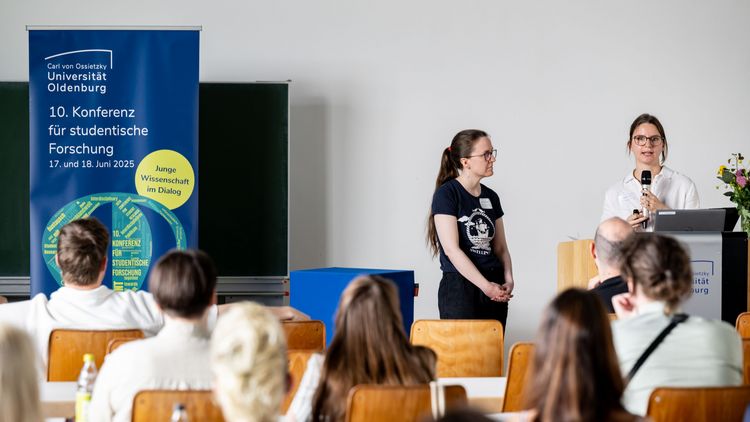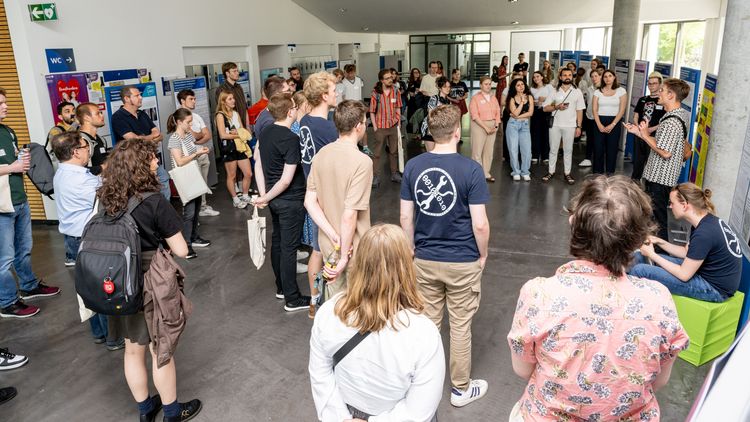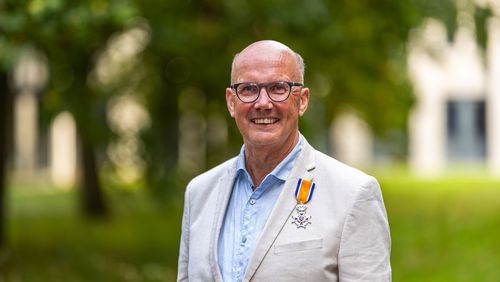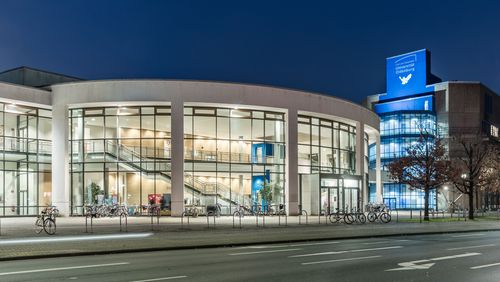Student research is the hot topic at the Lecture Centre right now: around one hundred students from all over Germany are presenting their research results at the 10th Conference for Student Research. The University of Oldenburg is also hosting an international conference on undergraduate research at the same time.
The University of Oldenburg has long been committed to a special form of research – "research-based learning" by students. Its teaching aims to encourage students to think beyond the content of their studies and actively participate in scientific processes. This week, the university has become a hub for student research: around a hundred students from all over Germany have convened on campus for the 10th Conference for Student Research (StuFo). Almost simultaneously, the University of Oldenburg is one of several higher education institutions hosting the International Conference of Undergraduate Research (ICUR), a globally unique hybrid conference at which undergraduate students from all over the world have the opportunity to present their research work. Launched in 2013 by the University of Warwick in the UK and Monash University in Australia, the ICUR has since developed into a global network comprising 13 institutions on six continents.
At StuFo, the focus is on the future: under the motto "Together towards the future – Discovering new horizons", students discuss topics such as the use of AI in schools, deep fakes as a threat to the state and the future of territorial borders and participants from a wide range of disciplines present research results from term papers, project work or theses, exchange ideas and develop new perspectives together. In addition, they have the opportunity to take part in workshops where they can try out new technologies such as VR and AR or learn how to publish scientific papers.
The first StuFo conference was held in Oldenburg in June 2016. The aim was to make student research more visible – beyond regional and disciplinary boundaries. The conference was initiated by the university's "Research-based learning in focus (FLiF)" project and has since been held in Berlin, Bochum, Kiel, Hamburg and other cities. As is customary for academic conferences, all submitted papers are scrutinised in a review process.
Students present their research in national parliaments and the European Parliament
In the "Posters in Brussels" project, the university also promotes student research – or more specifically undergraduate research (UR) – at the international level. Dr Susanne Haberstroh, head of the Department for Studying and Teaching, leads this EU-funded project which gives students from the University of Oldenburg and four other participating European universities the opportunity to present their research work in national parliaments as well as the European Parliament.
The project partners aim to establish a Europe-wide network for research-based learning and global cooperation in this area. Following a proposal by the University of Oldenburg, all the organisations involved in undergraduate research worldwide recently issued a declaration in London, known as the "London Statement", which emphasises the importance of student research in promoting skills such as critical thinking, creativity and problem-solving. The initiative aims to establish "Posters in Parliament" events in other European countries and introduce guidelines for appropriate and effective research mentoring.





